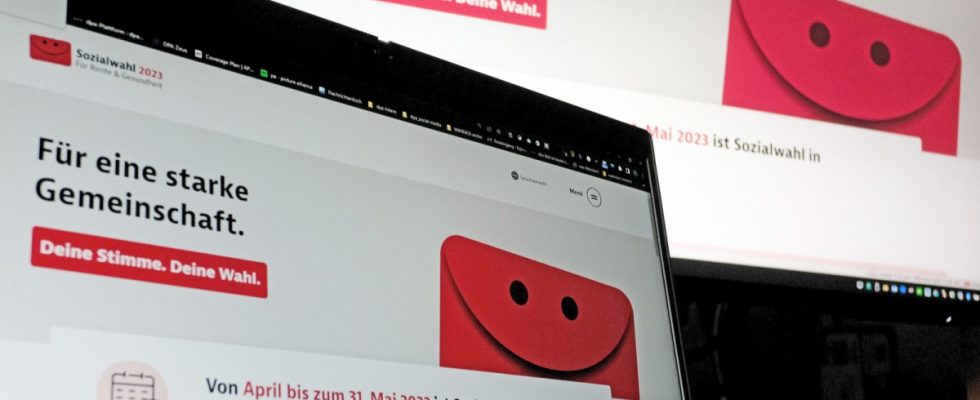In the coming weeks, millions of people in Bavaria are also called upon to take part in this year’s social elections. In the case of social elections, insured persons and pensioners can determine the social parliaments up to 31 May. Members of the board of directors of statutory health insurance companies and meetings of representatives of accident and pension insurance companies are elected. Elections take place every six years.
As reported by the German Pension Insurance Association and the Association of Substitute Funds, those entitled to vote should have received the documents for the election by mid-May. Otherwise, those affected should contact the pension insurance or their health insurance company. All contributors over the age of 16 are eligible to vote. The five alternative health insurance companies TK, Barmer, DAK-Gesundheit, KKH and the commercial health insurance fund (hkk) are also making it possible for their members to cast their votes online for the first time.
A Bavarian kick-off information event on the social election is planned for April 15 in Munich. The working group of Christian employee organizations also expects Social Affairs Minister Ulrike Scharf (CSU). Although this election is the third largest in Germany after the European and Bundestag elections, many are not familiar with it, say the organizers of the information event. People are unsure whether casting their vote in social elections is worth it at all.
According to the latest statistics from the pension insurance system, almost six million men and women paid contributions to the pension fund in Bavaria alone. You are insured with the federal pension insurance or the regional institutions of the statutory pension insurance. In addition to the nationwide insurance company, there are three providers in the Free State with the pension insurance companies of Bavaria South, North Bavaria and Swabia, which emerged from the former state insurance companies. They are all involved in social choice.
Social elections are also being closely observed by individual interest groups in Bavaria. For example, the Bavarian Farmers’ Association has drawn up its own list of candidates for the social security system for agriculture, forestry and horticulture (SVLFG), which is important in the agricultural sector. The farmers’ association reports that the candidates are supported by many agricultural organizations in Bavaria. In this way, all regions of Bavaria, many different production directions and a wide variety of age groups would be covered.
The hunters also want to have a say in the agricultural trade association and have therefore drawn up their own list. The interests of the hunters should thus be better addressed in the self-governing bodies, reported the Bavarian and the German Hunting Association.
Online voting is intended to motivate young people to vote
A total of around 52 million people in Germany are called upon to take part in the social elections, of which 22 million can vote online. The new online voting option is intended to increase voter turnout, which was around a third in 2017. Younger voters in particular are to be reached through online voting.
Overall, numerous mandates are awarded in social elections. Insured persons are elected from lists, the candidates come from trade unions and employer organizations, for example, but there are also free lists. According to information in member magazines and on the Internet, the lists set priorities such as more long-Covid rehabilitation or further digitization without overburdening the insured. The voting results are expected to be available in June.
The history of social elections dates back to the 1950s. The idea behind this is that those who pay in should also have a say. In the past, criticism of social elections was aimed at the fact that many things that the elected bodies decide were largely predetermined by the legislature.

